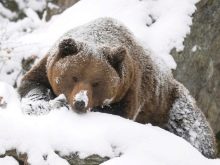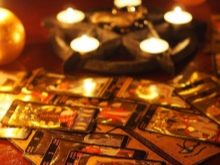Interesting about Maslenitsa: unique and unknown facts
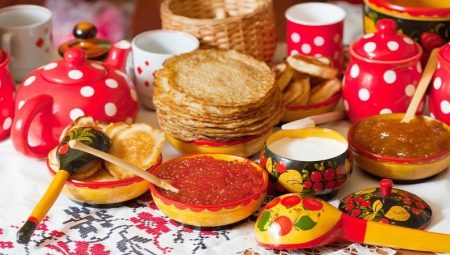
The period of late February - early March in Russia is marked by the celebration of Maslenitsa. At this time, people treat each other with pancakes, visit and have fun. However, the meaning of Cheese Week (as Maslenitsa week is also called) is not at all about eating delicacies, wild fun and tasting mead. Behind all these feasts and riotous games are ancient rituals and traditions. Let's tell you more about them.
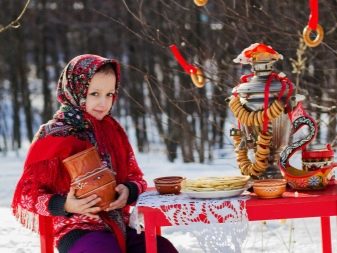

History of origin
The emergence of the holiday is associated with paganism. The chronicles that have survived to this day describe how the Slavs, a week before the spring equinox, organized celebrations in honor of the arrival of heat. Saying goodbye to the cold, they kindled fires, thereby attracting the sun. These days, our ancestors arranged merry fun, prepared many treats, glorifying the pagan gods. In particular, they wanted to please Yarilu - the god of fertility and vitality, as well as the god of the sun. As a token of gratitude for the warmth and light, they prepared pancakes as a gift to the solar deity.
In ancient times, festivities took place in the second half of March and lasted 2 weeks. The Church did not recognize Maslenitsa, considering it a pagan holiday, but the people continued to celebrate it on a grand scale.

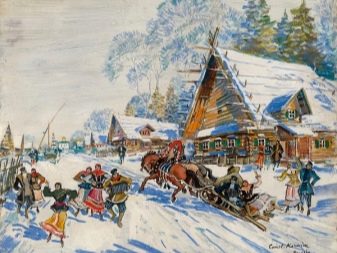
In the 16th century, Maslenitsa takes on the shape of a modern celebration. It has been celebrated for only a week, and the period of the festival is also shifting. In the second half of the 18th century, the church perceives Maslenitsa as a preparation for Great Lent, allows believers to eat fast food during this period and approves the prayers that should be said at this time.
In every era in Russia, Maslenitsa was celebrated on a grand scale. Peter the Great was waiting for this moment to ride around Peter on a horse-drawn ship.His heiress Elizabeth loved chic Maslenitsa feasts and ate a huge amount of pancakes with caviar. Catherine II arranged a masquerade during Maslenitsa week. Nowadays Maslenitsa is a holiday of meeting spring and farewell to winter. It starts 56 days before the Easter celebrations. Each day of the week symbolizes a certain rite, but the actions are always accompanied by fun, a generous table and eating pancakes. And so that winter quickly gave way to spring, people make and burn a scarecrow.
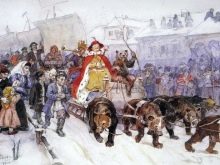
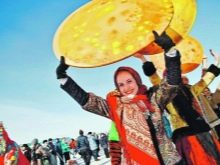
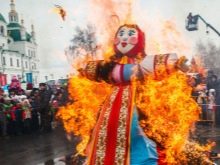
Versions of the origin of the name of the holiday
Legends that have survived to this day tell about the origin of the name of the Maslenitsa holiday. According to one of the versions, it is due to the fact that during this period people had already stopped eating meat products, and dairy products were still left in the diet. Hence the abundance of butter, which was used to bake pancakes. Another version is associated with the many-sided goddess Lelei. She always appeared before people in the form of an elegant slender girl, and on the day of the vernal equinox she appeared in the guise of a cheerful woman with magnificent forms and a blush shiny from oil. In this way the goddess Lelia was nicknamed Maslenitsa - hence the holiday of the same name.
Well, the most common version says that the name of the holiday is due to the fact that our ancestors tried to “butter up” the Sun with pancakes, similar to a luminary, and to appease the pagan celestials so that they would send heat to the earth. Pancakes in the form of a sun treat have become a staple in Shrovetide week, so many are inclined to believe that the latest version is the most believable. Tasting pancakes, people believed that the heavenly body would certainly give after that a piece of its warmth.

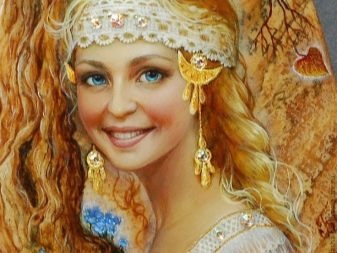
I must say that not only the holiday itself has its own name, but every day of the Maslenitsa week is also called in its own way. And on each of these days, certain rituals are performed.
- On Monday we met Maslenitsa. In ancient times, a stuffed animal was made of straw and rolled around the village, singing songs and having fun.
- On tuesday we had "flirtations", had fun in full, arranged booths, dressed up in carnival costumes and went home.
- Wednesday is time for a generous feast, pancakes with different fillings were put on the table and other dishes were prepared.
- On Thursday, it was time for a binge. The heroes on this day tripled fistfights, the children next to them imitated them.
- Friday - the time of family gatherings, the focus is on the mother-in-law's hospitality.
- On Saturday the daughters-in-law received their relatives - the Catherine's gatherings came.
- We saw off Shrovetide on Forgiveness Sunday. On this day, it was customary to ask each other for forgiveness, visit the graves of deceased relatives, leave pancakes there, and at the end of the holiday, publicly burn a straw effigy made on Monday.
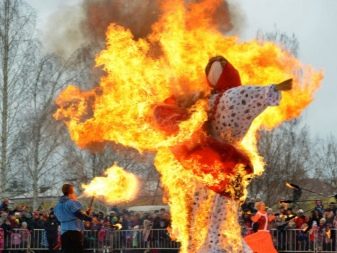
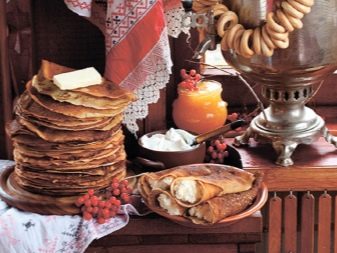
Shrovetide in other countries
Today Maslenitsa is celebrated not only in Russia. There are similar holidays in other European countries. So, in Slovenia, it is called Kuretovane (similar to the burning of a stuffed animal). Its essence boils down to the expulsion of winter, for this people turn out their sheepskin coats, put on masks and dance a lot. Another Slovenian ceremony is a wedding with a pine tree. On the last day before Lent, Slovenes play weddings with pine trees, which act as newlyweds. And people are matchmakers and buddies at this wedding. So they celebrate Meatopust (an analogue of Shrovetide).
In Croatia, winter is also frightened, the main role in this rite is given to young guyswho dress up in animal skins, put on masks and horns and, emitting loud growls, go through the streets in order to banish winter. The ceremony is reminiscent of the Slovenian Kuretovanya. Before Lent, the Scandinavian Carnival is held in countries such as Denmark, Norway, Estonia and Latvia. "Vastlavi" - this is the name of the festive festivities in these countries, where instead of pancakes, people treat each other with buns with various fillings.
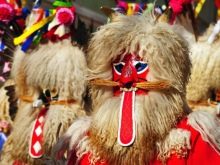
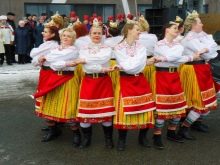
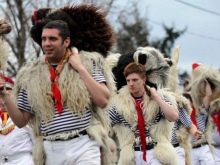
Americans and Francophone Europeans celebrate Mardi Gras (Fat Tuesday). A noisy and cheerful carnival is led by the king and queen (improvised characters). International analogues of Maslenitsa exist in other countries, for example, in the UK and the Czech Republic. Our Slavic brothers - Belarusians, Ukrainians - have such a holiday. Maslenitsa is also celebrated in Moldova. Catholics also have a holiday similar to Maslenitsa - Carnival. It is also held before Great Lent, but the meaning of the word is somewhat different.
Carne vale in translation means "goodbye, meat", which is symbolic for the upcoming fast.

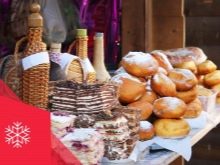
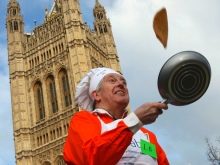
Other unusual facts
History keeps interesting facts about Maslenitsa. Let's talk about some of them.
- Initially, Maslenitsa was not a woman, but a man. This is due to the glorification of the pagan god Yarila by the ancient Russians, who was seen in the form of a young man. He died every year, and having resurrected, he gave people warmth and new hopes for the harvest.
- Pancakes were not originally discussed. Their ancestors considered them more a memorial dish; on Shrovetide they baked round cakes from grain. There is a version that pancakes became the main attribute of Maslenitsa in Russia in the 19th century as a result of an error by unknown researchers of Russian culture.
- Five centuries ago Maslenitsa was called Komoeditsa. Translated from the Old Church Slavonic language "com" means a bear. But what does this beast have to do with it? And despite the fact that, according to one of the versions, our ancient ancestors woke up a bear during this period, hence the expression: "the first pancake is coma" (exactly like this, through "a"), that is, bears (according to another version - forest spirits). But this holiday was subsequently celebrated in April as an independent one.
- It has long been customary to guess on Maslenitsa, for this they chose the penultimate day of the Maslenitsa week. On Saturday, on Zolovka's gatherings, the sisters of the husbands brought their girlfriends into the house to the daughters-in-law and wondered about the betrothed. And married ladies wondered about the number of future children.
Much of the past, regarding the celebration of Maslenitsa, has survived to this day. The Russian people celebrate their favorite holiday on a grand scale. And even if today this is happening largely improvised (for example, there are no real battles), but in general the tradition has been preserved and passed on from generation to generation.

